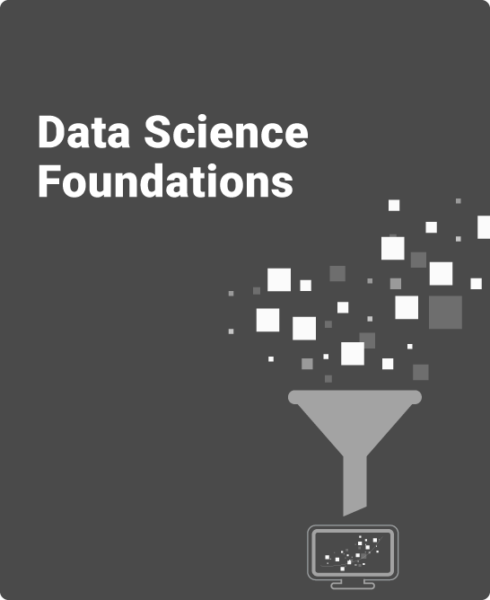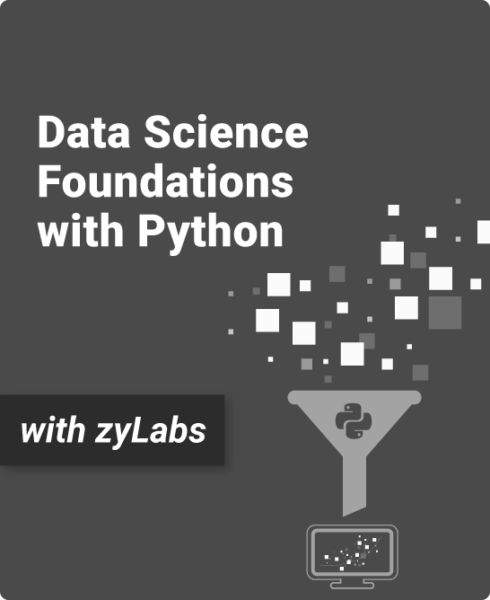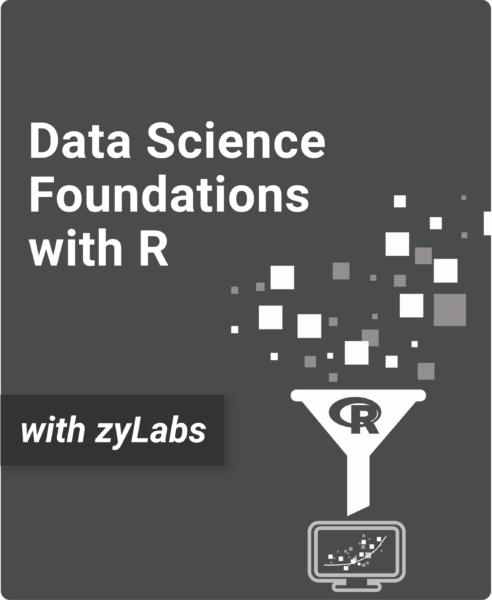Table of Contents
1. Introduction to Data Science
1.1 Historical overview
1.2 Why data science?
1.3 Careers in data science
1.4 Data science lifecycle
1.5 Ethics in data science
1.6 Case study: Netflix
2. Probability and Statistics
2.1 Data collection
2.2 Descriptive statistics
2.3 Probability
2.4 Probability distributions
2.5 Inferential statistics
2.6 Inference for proportions and means
2.7 Case study: Flight delays
3. Data Wrangling
3.1 Data wrangling
3.2 Manipulating data
3.3 Structuring data
3.4 Cleaning data
3.5 Enriching data
3.6 Case study: Diamond prices
4. Data Exploration
4.1 Visualizing data with one feature
4.2 Visualizing data with multiple features
4.3 Best practices for visualizing data
4.4 Tools for visualizing data
4.5 Performing exploratory data analysis
4.6 Detecting outliers
4.7 Case study: Palmer penguins
5. Regression
5.1 Introduction to regression
5.2 Simple linear regression
5.3 Linear regression assumptions
5.4 Multiple linear regression
5.5 Logistic regression
5.6 Case study: Energy consumption
5.6 Case study: Customer churn
6. Evaluating Model Performance
6.1 Model error
6.2 Training, validation, and test sets
6.3 Loss functions for regression
6.4 Loss functions for classification
6.5 Binary classification metrics
6.6 Cross-validation
6.7 Bootstrap method
6.8 Comparing models
6.9 Case study: Home prices
7. Supervised Learning
7.1 Introduction to supervised learning
7.2 K-nearest neighbors
7.3 Naive Bayes classification
7.4 Support vector machines
7.5 Case study: Classifying cells
8. Unsupervised Learning
8.1 Introduction to unsupervised learning
8.2 K-means clustering
8.3 Hierarchical clustering
8.4 Detecting outliers using DBSCAN
8.5 Analyzing factors
8.6 Analyzing factors using PCA
8.7 Case study: Travel reviews
9. Decision Trees
9.1 Introduction to decision trees
9.2 Regression trees
9.3 Classification trees
9.4 Random forests
9.5 Case study: Marijuana legalization
10. Artificial Neural Networks
10.1 Introduction to artificial neural networks
10.2 Single-layer perceptron
10.3 Nonlinear activation functions
10.4 Multilayer perceptron
10.5 Case study: Bike share demand
11. Ensemble Techniques
11.1 Introduction to ensemble models
11.2 Boosting
11.3 Bagging
11.4 Stacking
11.5 Case study: Bob Ross
12. Artificial Intelligence
12.1 Artificial intelligence
12.2 Machine learning
12.3 Computer vision
12.4 Natural language processing
12.5 Risks and ethics in AI
Teach data science with the only interactive introduction to foundational algorithms and techniques
Data Science Foundations is the first complete, interactive introduction that develops an applied understanding of topics in data science.
- Covers data science through a conceptual lens without assuming a background in programming or statistics
- Includes data preprocessing, regression techniques, supervised and unsupervised learning algorithms, decision trees, neural networks, ensemble methods, model evaluation techniques, and artificial intelligence
- Continuously updated with the latest advances in data science
- Case studies illustrate the data science lifecycle from start to finish with real data
- Adopters have access to a test bank with over 250 questions
Co-author Dr. Schwab-McCoy explains the benefits of zyBooks for both data science instructors and students:
What is a zyBook?
Data Science Foundations is a web-native, interactive zyBook that helps students visualize concepts to learn faster and more effectively than with a traditional textbook. (Check out our research.)
Since 2012, over 1,800 academic institutions have adopted web-native zyBooks to transform their STEM education.
zyBooks benefit students and instructors:
- Instructor benefits
- Customize your course by reorganizing existing content or adding your own
- Continuous publication model updates your course with the latest content and technologies
- Gain insight into students’ progress, reading and participation with robust reporting
- Build quizzes and exams with over 250 included test questions
- Student benefits
- Learning questions and other content serve as an interactive form of reading
- Instant feedback on labs and homework
- Concepts come to life through extensive animations embedded into the interactive content
- Save chapters as PDFs to reference the material at any time
Authors
Aimee Schwab-McCoy
Senior Manager, Content Development, Data Science, Mathematics and Statistics / PhD in Statistics, University of Nebraska–Lincoln
Chris Chan
MA in Mathematics, San Francisco State University
Matt Rissler
PhD in Mathematics, University of Notre Dame



